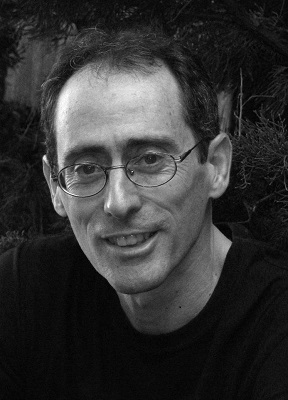 Over the course of his writing career, Michael Laser has written books for children, teens and adults. His past work includes Hidden Away (2013), The Watermelon (2012) and 6-321 (2001), and his essays have been published in the New York Times, the Los Angeles Times and on Salon.com. He was born in Brooklyn, N.Y., and lives now in New Jersey. His newest novel, a darkly funny satire entitled My Impending Death, was recently published by Permanent Press.
Over the course of his writing career, Michael Laser has written books for children, teens and adults. His past work includes Hidden Away (2013), The Watermelon (2012) and 6-321 (2001), and his essays have been published in the New York Times, the Los Angeles Times and on Salon.com. He was born in Brooklyn, N.Y., and lives now in New Jersey. His newest novel, a darkly funny satire entitled My Impending Death, was recently published by Permanent Press.
Could you give a brief synopsis of My Impending Death?
It's about a guy named Angus Truax, who's obese, unhappy, and rude, with no friends--so one day he says to himself, "You know what? Why keep living?" And he plans to kill himself--but he gives himself a month to tie up loose ends. He doesn't want to leave a mess behind. And in that month, certain things happen, and it becomes harder and harder for him to go through with his plan.
He also happens to be a funny guy, who says a lot of outrageous things. You could say he's joking his way to the grave.
You've written books for adults as well as YA and children's books. You've also edited books and worked as a ghostwriter. How does that range of experience, both writing and editing, affect your writing process?
For so many years--about 40, now--I've been editing my own work mercilessly, hunting for weaknesses (I'm sure there are smart readers out there who can find ones I didn't notice. I hope they all buy the book and search hard!). After doing this for so long, editing other people's work feels comfortable, even pleasant. I can't say it's changed anything about the way I write, though.
Do you have a favorite type of book to write?
I realized late in life that I really should write things that are funny. I admire graceful, poetic, melancholy books so much, I've always wanted to write that way, but my talents seem to lie in a different place, where broad comedy meets a poignant story. That said, I still hope to write at least one short story that's so beautiful, people will feel an ache in their hearts whenever they think of it.
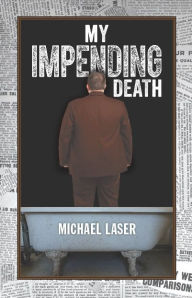 How does My Impending Death differ from your previous books? How did it begin?
How does My Impending Death differ from your previous books? How did it begin?
Every time I write a book, my goal is to write something very different from the ones I've written before. This time, I wanted it to be really funny, and rude. It began with nothing more than a profession: after years of reading those "Neediest Cases" articles in the New York Times, I thought it might be fun to write about someone who writes those articles and nothing else--someone who acquires the nickname "Mr. Misery." I wanted him to be as different from myself as possible, so I made him misanthropic, overweight and suicidal. Nevertheless, there's still a lot of me in him. I guess that's unavoidable.
So, I had a character, but I still needed a plot. Somehow, the Charlie Chaplin movie City Lights floated into my memory: that hapless character who'll do anything to help the lovely blind girl get her sight back. It seemed like a good idea to pair an extremely cynical, rude character with an archetypal sentimental story-line. And he's aware of it himself, and disgusted with himself for falling into the trap. There isn't a blind shop-girl in my book--but there is a home health aide from the Republic of Georgia who may be dying of mercury poisoning.
Which writers or particular books have influenced you?
There are many books that I love, that have exerted an influence, but I don't think you can see much of a similarity between my work and my idols'. I wish I could come close to their level, but what can I say? You do your best, and then feel sad about falling short. Here are some of my favorites: The Moviegoer by Walker Percy. His style is my ideal: it's clean, it's graceful, it's beautiful, it's got a sense of humor, but his insights cut deep. Others: The Book of Laughter and Forgetting by Milan Kundera. Richard Ford's short stories, especially the collection Rock Springs. Also, stories by Grace Paley, and Chekhov, and Heinrich von Kleist. Waiting for the Barbarians by J.M. Coetzee. Murphy by Samuel Beckett (there's a hidden thread connecting that novel to My Impending Death, if anyone in the world cares to look for it). I can sit in awe reading any page of Tolstoy, Kafka or Joyce (okay, almost any page). There are so many other books and authors I love--but those have been the most influential.
For how long have you been writing? Was it something you wanted to do all your life, or did your interest in writing come later?
One morning, when I was 18, I woke up and said to myself, "I'm going to be a writer." That sounds like a joke, but it's literally true. It didn't come from nowhere, though. This was my mother's ambition for me: she never finished high school, but she revered great authors, she thought that was the best thing you could do in the world. I didn't shape my life to make Mom happy, but when you grow up surrounded by this attitude, it has an effect. Then there was an encouraging sixth grade teacher, Mr. Catania (who's thinly disguised as Mr. Vigoritti in my middle-grade novel, 6-321), and some intervening years when none of my teachers were particularly impressed…and then college, a great freshman English professor named Michael Conlon, and boom, that epiphany.
And if it's not too early to ask, what are you working on now?
I'm two-thirds of the way through the first draft of a novel about two women who were best friends as kids, who reconnect in their 30s. I don't want to say more than that, but things happen! Lots of things! --Alex Mutter
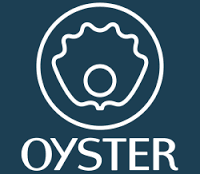 Oyster, the Netflix-style book subscription service launched two years ago, is folding and several of its top executives are being hired by Google for Google Play Books, its e-book service, the Wall Street Journal reported. According to re/code, the group going to Google includes CEO Eric Stromberg and co-founders Andrew Brown and Willem Van Lancker. Google reportedly is paying investors for the right to hire staff.
Oyster, the Netflix-style book subscription service launched two years ago, is folding and several of its top executives are being hired by Google for Google Play Books, its e-book service, the Wall Street Journal reported. According to re/code, the group going to Google includes CEO Eric Stromberg and co-founders Andrew Brown and Willem Van Lancker. Google reportedly is paying investors for the right to hire staff.




SHELFAWARENESS.1222.S1.BESTADSWEBINAR.gif)



 Amazon and its subsidiary Audible are building a monopoly in the German audiobook business and using their market position to force "unreasonable conditions" on publishers for the marketing of audiobooks, the Boersenverein--the German publishers, wholesalers and booksellers association--has alleged in
Amazon and its subsidiary Audible are building a monopoly in the German audiobook business and using their market position to force "unreasonable conditions" on publishers for the marketing of audiobooks, the Boersenverein--the German publishers, wholesalers and booksellers association--has alleged in SHELFAWARENESS.1222.T1.BESTADSWEBINAR.gif)
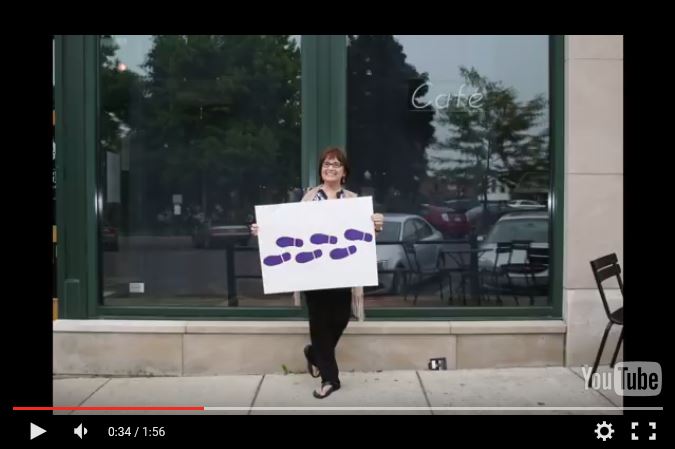
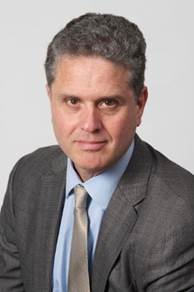
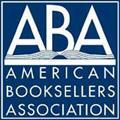 The news for independent booksellers is overwhelming good, said American Booksellers Association CEO Oren Teicher in a wide-ranging interview recently. Among the high points: indie sales continue to be strong; stores are opening at a healthy rate, bringing new, younger booksellers into the business; many established stores are opening branches; stores for sale find new owners; and ABA membership continues to grow.
The news for independent booksellers is overwhelming good, said American Booksellers Association CEO Oren Teicher in a wide-ranging interview recently. Among the high points: indie sales continue to be strong; stores are opening at a healthy rate, bringing new, younger booksellers into the business; many established stores are opening branches; stores for sale find new owners; and ABA membership continues to grow.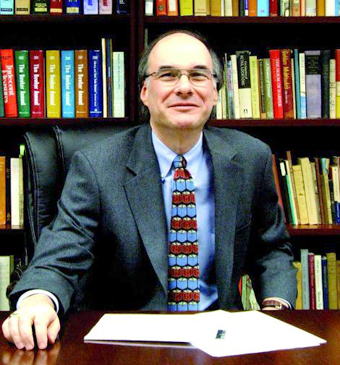 As for the opening of new stores and purchases of established stores, new owners bring a lot of "enthusiasm and energy," Teicher said. "There's no data to back this up, but their presence has inadvertently served to give confidence to everybody else.... For a long time, for most booksellers, there was no logical succession plan remotely in the ballpark."
As for the opening of new stores and purchases of established stores, new owners bring a lot of "enthusiasm and energy," Teicher said. "There's no data to back this up, but their presence has inadvertently served to give confidence to everybody else.... For a long time, for most booksellers, there was no logical succession plan remotely in the ballpark."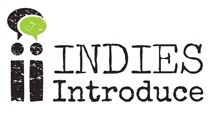 The
The 
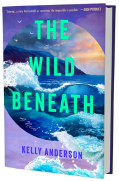
 The famous "Painted Ladies" Victorian houses of San Francisco had some competition on Saturday, as visitors to the Ferry Building
The famous "Painted Ladies" Victorian houses of San Francisco had some competition on Saturday, as visitors to the Ferry Building  The White Hart Inn, just a few miles from Oblong's Millerton store, dates back to the 1800s and has seen many owners and transformations over the years. Its current incarnation opened in 2014; among its owners are author Malcolm Gladwell and Meredith Rollins, the editor in chief of Redbook magazine.
The White Hart Inn, just a few miles from Oblong's Millerton store, dates back to the 1800s and has seen many owners and transformations over the years. Its current incarnation opened in 2014; among its owners are author Malcolm Gladwell and Meredith Rollins, the editor in chief of Redbook magazine.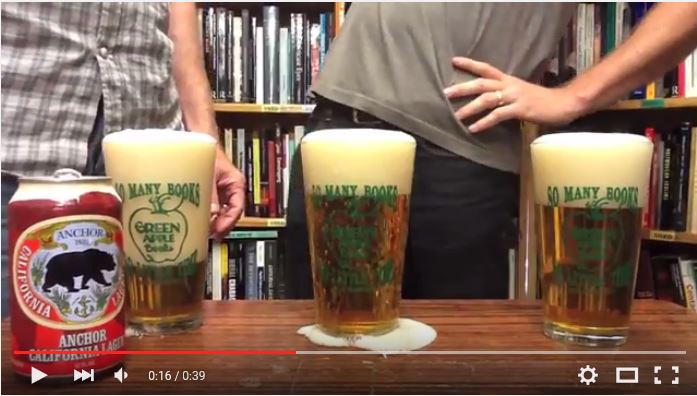

 Kongo: Power and Majesty
Kongo: Power and Majesty Over the course of his writing career,
Over the course of his writing career,  How does My Impending Death differ from your previous books? How did it begin?
How does My Impending Death differ from your previous books? How did it begin? When it comes to the debate over the digital world's effect on our habits of thought and our engagement with the written word, AGNI editor Sven Birkerts is no newcomer to the conversation. In 1994's The Gutenberg Elegies, he identified a cluster of unsettling trends that have only intensified since that time. Changing the Subject: Art and Attention in the Internet Age can be viewed as a companion work, one that's no more sanguine than its predecessor about the survival of traditional reading culture.
When it comes to the debate over the digital world's effect on our habits of thought and our engagement with the written word, AGNI editor Sven Birkerts is no newcomer to the conversation. In 1994's The Gutenberg Elegies, he identified a cluster of unsettling trends that have only intensified since that time. Changing the Subject: Art and Attention in the Internet Age can be viewed as a companion work, one that's no more sanguine than its predecessor about the survival of traditional reading culture.